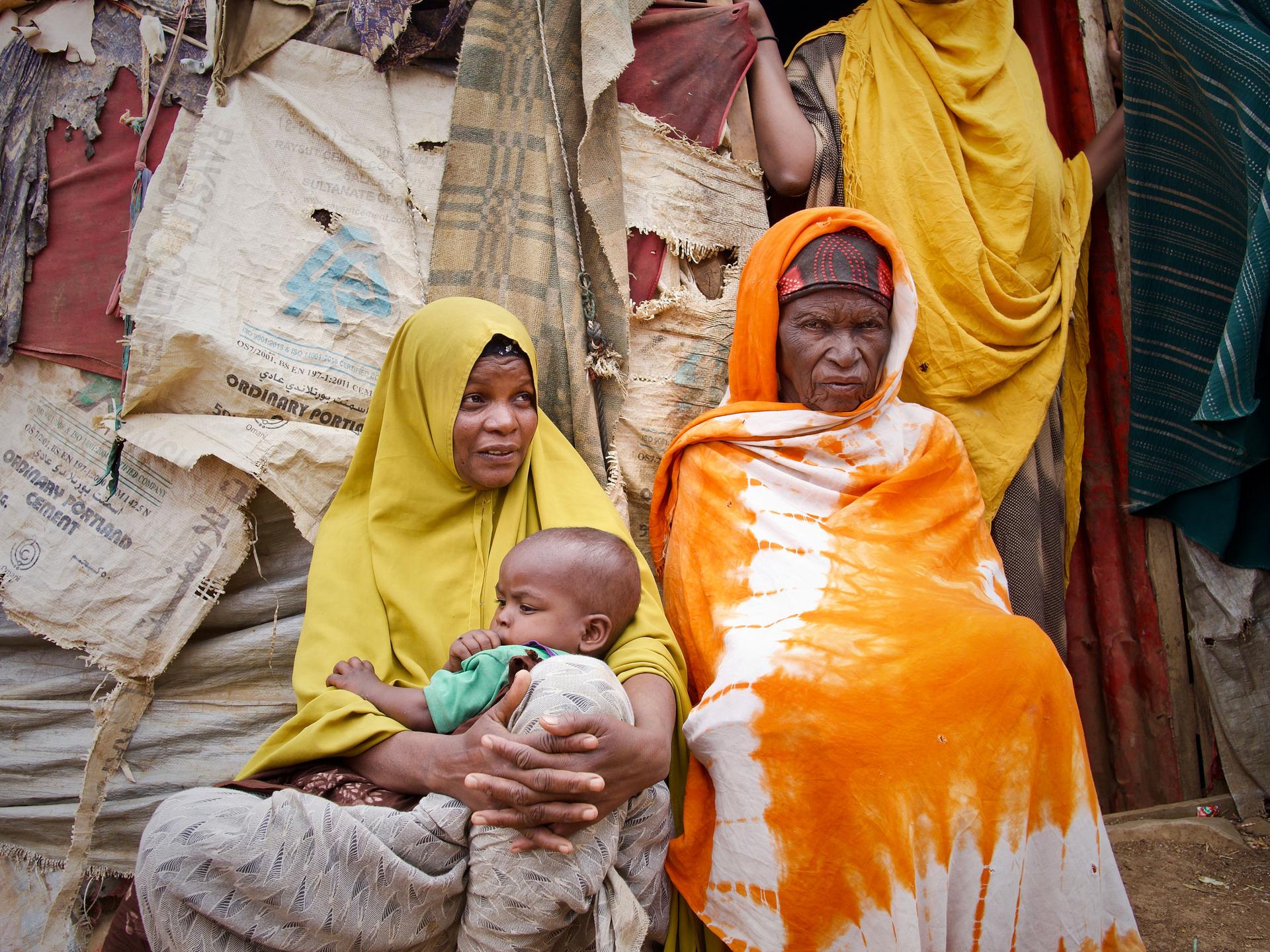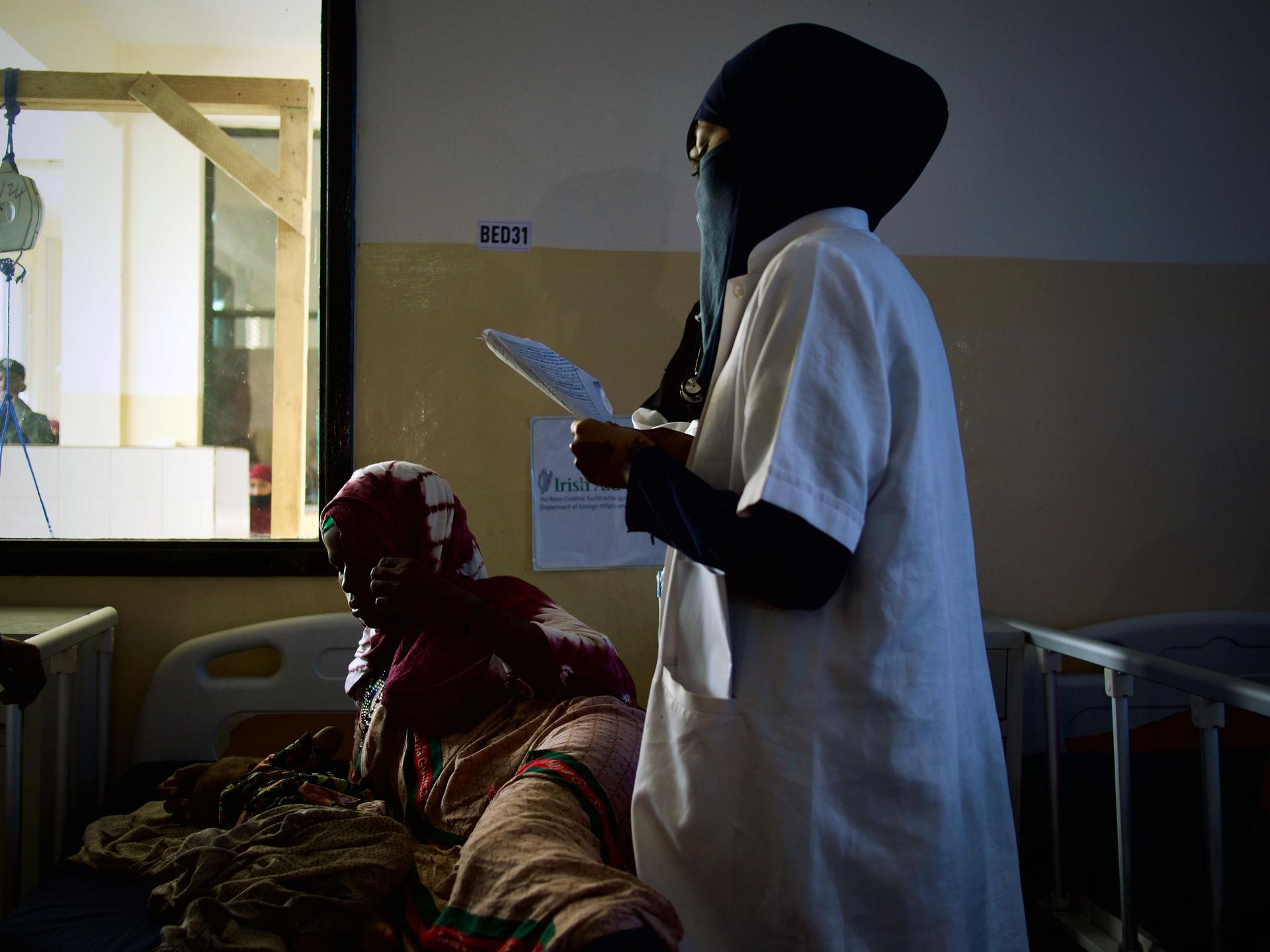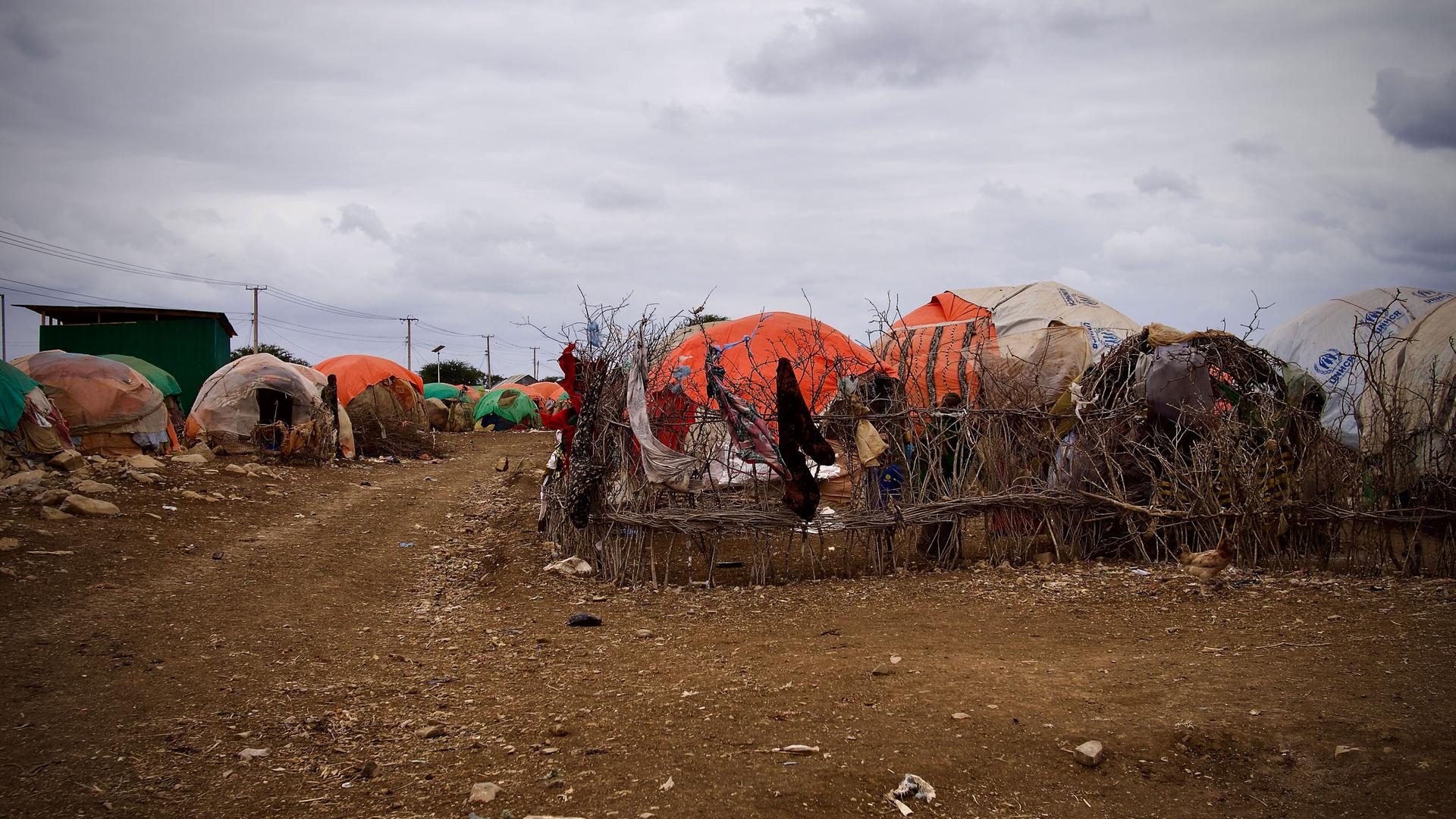At a camp for internally displaced people in Baidoa, Somalia, Lisho Iman Ali shoved long, thin branches into the hard earth — the foundation of a temporary shelter she was helping to build.
She arrived at the camp three months ago after fleeing her village.
“Because of the drought,” she said. “And because of insecurity.”
As the United Nations warns Somalia is nearing a famine, millions of people like Ali find themselves caught between twin crisies: the worst drought to hit the region in more than 40 years, and ongoing insecurity caused by terrorism.
For more than a decade, Somalia has been fighting against a deadly insurgency of al-Shabab, an al-Qaeda affiliate that controls large swaths of land and wages deadly attacks against civilians and officials alike.
This is creating a challenge for officials and organizations trying to deliver critical aid.
In her village, Ali recalls how al-Shabab militants demanded the she dressed more modestly according to their interpretations of Islam.
“I didn’t have the money for new clothes,” she said.

Fearing for her safety, and without food, Ali came to this camp for displaced people. But even here, she has struggled to find food or water for her family.
“Maybe I eat once a day,” Ali said. “Sometimes, I have to beg for food.”
Most people at the camp have said they have yet to receive humanitarian aid. Despite a heavy presence of African Union peacekeeping troops in Baidoa, local officials have said al-Shabab is making it difficult to help communities in need.
“Al-Shabab. They are the ones who are causing the humanitarian disaster. Because they are preventing people [from exercising] their livelihood activities, including farming,” said Abdirahman Abdishakur, Somalia’s special presidential envoy for drought.
He added that the group is heavily taxing farmers in rural areas and targeting humanitarian workers.
Earlier this month, al-Shabab militants attacked a truck convoy carrying food supplies in central Somalia, killing 20 people, including women and children.
“It is tragic,” Abdishakur said. “Because people are already suffering the impact of the drought, and they are doubling the suffering.”

Some humanitarian workers have quietly worried this approach could negatively impact aid delivery. But Abdishakur disagreed.
“Unless we remove that security threat, it is extremely difficult to save those who are dying because of hunger,” he said.
This week, Abdishakur briefed member states of the United Nations about the drought in Somalia, urging for more funding and for sustainable, local solutions.
“Our long-term goal is to break free from this constant cycle of suffering, hunger, and crisis. Billions of dollars have been spent on aid in our country and billions more will be spent until we go beyond emergency measures.”
He said Somalia needs investment and financing to help communities become more resilient to climate shocks like droughts, which experts say are becoming more frequent.
In parts of the country, humanitarian organizations have been trying some sustainable approaches on the ground.
The International Committee of the Red Cross, for example, has been assisting agricultural cooperatives in hard-to-reach areas by providing drought-resistant seeds.
“With the drought-resistant seeds we have been distributing, they were able to go back to their land and farms and be able to produce, even in this difficult situation,” the ICRC’s Mohamed Ibrahim said.
But for the 1 million people already displaced by drought, these solutions might be too late.
“Receiving seeds would help,” said Fatuma Osman, a farmer who fled to a camp once her crops failed. “But only if the rains come.”
The upcoming rainy season is projected to fall short for the fifth time in a row.
Related: ‘No more food in my village’: Aid needed to avert a famine in Somalia
